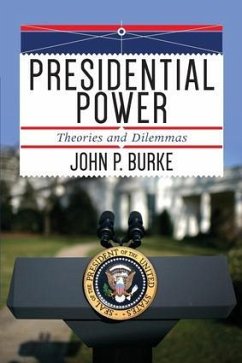This book fills a major gap in the presidency studies scholarly literature. It brings Richard E. Neustadt s classic study of presidential power up to the present with a comprehensive examination of subsequent research on the subject. It promises to become standard reading in courses on the American presidency, and a foundational text on presidential power for scholars. Meena Bose, Director of Peter S. Kalikow Center for the Study of the American Presidency John Burke s masterful book disentangles the complex and contradictory nature of the American presidency. Burke is at the top of his game with this outstanding book and we are in his debt for making this hard-to-comprehend office more accessible. Michael A. Genovese, President, World Policy Institute at Loyola Marymount University Presidential power is perhaps one of the most central issues in the study of the American presidency. Since Richard E. Neustadt s classic study, first published in 1960, there has not been a book that thoroughly examines the issue of presidential power. "Presidential Power: Theories and Dilemmas" by noted scholar John P. Burke provides an updated and comprehensive look at the issues, constraints, and exercise of presidential power. This book considers the enduring question of how presidents can effectively exercise power within our system of shared powers by examining major tools and theories of presidential power, including Neustadt s theory of persuasion and bargaining as power, constitutional and inherent powers, Samuel Kernell s theory of going public, models of historical time, and the notion of internal time. Using illustrative examples from historical and contemporary presidencies, Burke helps students and scholars better understand how presidents can manage the public s expectations, navigate presidential-congressional relations, and exercise influence in order to achieve their policy goals. John P. Burke is the John G. McCullough Professor of Political Science at the University of Vermont. He is author of numerous articles and books on the presidency, including "Honest Broker? The National Security Advisor and Presidential Decision Making "(2009), "Becoming President: The Bush Transition 2000-2003" (2004), "The Institutional Presidency" (2000) and "Presidential Transitions: From Politics to Practice" (2000). "

